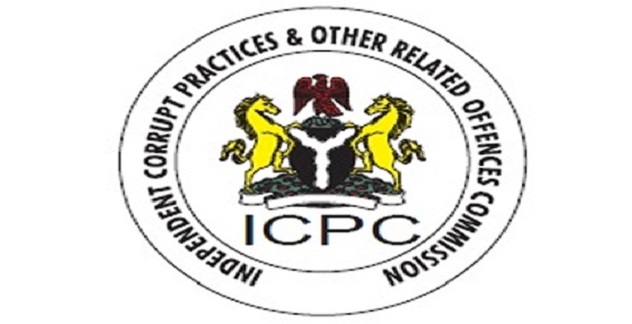Broadcasting
Court Rejects Zenith Bank’s Objection, Imposes N100, 000 Charge in N1Bn Pinnacle/ICPC Suit

Justice Taiwo Taiwo of the Federal High Court, Abuja, on Friday dismissed a preliminary objection by Zenith bank challenging a suit filed by Pinnacle Communications Ltd (PCL) against the Independent Corrupt Practices and other related offences Commission (ICPC), and the commercial bank.

Pinnacle Communications had in July 2018, dragged ICPC and Zenith bank to court for unlawfully withholding its money domicile in the bank without a valid court order, and consequently, is claiming N1billion damages against the agency.
Delivering ruling on the objection of Zenith bank (2nd defendant), the court said the application lacked merit, was frivolous and incompetent.
Justice Taiwo held that Okey Ojukwu, counsel to the commercial bank ought not to have filed the preliminary objection in the first place because the December 14, 2018, judgement of Justice Nnamdi Dimgba, which voided and nullified the freezing of account of Pinnacle Communications domicile in the bank was explicit and unambiguous.
Ojukwu had in the preliminary objection of the bank claimed that the action it took by withholding the account of PCL was a “lawful act”.
Justice Taiwo said the objection by the bank was filed out of misconception and only amounted to a waste of the court’s precious time.
“The application of the second defendant is an invitation to this court to sit on appeal on the decision of my learned brother Dimgba J. of Dec.14, 2018.
“This court, with all due respect to the second defendant shall not fall into that error.
“The application is not only incompetent and an abuse of court process, it is one brought without carefully and painstakingly understanding the ruling my learned brother gave on the interlocutory injunction” Justice Taiwo held.
Consequently, the Judge reasoned that “This type of application should be discouraged by the court and counsel, and to discourage counsel from filing such frivolous application, the court must come down hard on counsel who filed such applications either on their own or on the instruction of their client”.
“I therefore find no merit in this application and it is accordingly dismissed having held that the application is frivolous, time wasting, incompetent and an abuse of court process.
“I shall fail in my duty as a judge if I do not award cost. Therefore, I award N100,000 against the second defendant in favour of the plaintiff” Justice Taiwo stated.
By the suit marked FHC/ABJ/CS/779/18, Pinnacle Communications is seeking “A declaration that the act of the 1st defendant (ICPC) in ordering the 3rd defendant to place a “post-no-debit” restrictions on the plaintiff’s account with the 2nd defendant without any court order and or any valid court order is ultra vires, unlawful, injurious, unconstitutional and a breach of the plaintiff’s right to its movable property.
The plaintiff is also seeking, “A declaration that the act of the 2nd defendant in placing a “post-no-debit” restrictions on the plaintiffs account number 1012875804 with the 3rd defendant without any court order and or any valid order is unlawful, injurious, unconstitutional and a breach of the plaintiff’s right to its movable property.
More so, PCL wants, “A declaration that the failure of the 2nd defendant to right the wrongful act of the first defendant in ordering a “post no debit” restrictions on the plaintiff’s account with the 2nd defendant without a valid court order is unlawful, illegal, unconstitutional and a breach of the plaintiff’s right to its movable property.
Further more, the plaintiff is seeking “An order of perpetual injunction restraining the defendant from placing any restrictions on plaintiff’s account with the 2nd defendant without a valid and competent court order.
“An order of perpetual injunction restraining the 1st defendant from placing any form of restrictions on the plaintiff’s account with the 2nd defendant and or any other bank or financial institution in which the plaintiff maintains any account and or dealings, without a court order and or valid and competent court order.
“An order for the payment of the one billion naira as general, exemplary and punitive damages against the defendant for their unlawful and illegal act.
Broadcasting
Oluwaseun Dania Unearths How AI will Shape Africa’s Creative-AI Future @ World Bank Forum

Oluwaseun Dania, Technology entrepreneur, creative economy strategist, and Founder of Alpha-Geek Technologies, delivered a major intervention at the World Bank and Eden Venture Group’s Entertaining Change: Next-Generation Media Partnerships for Social Impact and Gender Equality event, introducing groundbreaking ideas shaping the future of African storytelling, AI governance, and digital policy.

Speaking during the knowledge-sharing session on AI for Entertainment Media Content: Advancing Impact and Research, Dania outlined how artificial intelligence can unlock unprecedented opportunities for creators, researchers, regulators, and development partners across the continent.
Key Messages Delivered at the Event
- 1. AI as a Multiplier for African Creativity
Dania emphasized that AI is not replacing creativity, it is amplifying it:
“Africa’s creative sector already shapes global culture. AI gives our stories reach, scale, and economic force.”
He showcased how AI supports script-writing, editing, VFX, audio enhancement, audience forecasting, and rights protection, enabling African creators to produce globally competitive content at significantly reduced cost.
- The Indie-Studio-in-a-Box: A Creative and Economic Breakthrough
Dania introduced the Indie-Studio-in-a-Box, a streamlined AI-powered production model that allows small teams (5–8 people) to execute an end-to-end studio pipeline from a single laptop.
The model includes:
- AI-assisted script development
- Virtual pre-visualization
- Smart on-set production tools
- Automated post-production (clean-up, VFX, edits)
- Multi-language AI dubbing
- AI-enabled IP protection
- Rapid digital distribution
“A complete African studio can now live inside a laptop. That is a transformative shift for creators and the economy.”
- A.I.R.: A Modern Ethical Framework for Creative AI
To ensure AI adoption remains responsible and creator-centred, Dania unveiled the A.I.R. Framework, which sets out three core pillars:
A — Attribution:
Clear rights, consent and credit for creators, performers, and their likeness.
I — Integrity:
Mandatory provenance watermarking to maintain transparency around AI-generated or AI-assisted content.
R — Residuals:
Smart-contract systems that ensure fair, automated compensation whenever a creator’s work or likeness is reused.
- Collaboration with Academia to Tackle AI Bias & Update Creative Curricula
Dania strongly advocated for deep collaboration between the government, Big Tech Companies, the creative industry, and universities to ensure African voices and contexts shape the AI tools used in media.
He stressed the importance of:
- Updating film, media, and computer science curricula to include AI literacy
- Teaching future creators how to recognise, audit, and mitigate AI bias
- Building African-language and culturally relevant datasets in partnership with universities
- Establishing research labs that study representation, inclusivity, and algorithmic fairness
- Creating pipelines between academia and the creative industry to ensure continuous innovation
“If we want AI systems that understand African faces, voices, stories, and social norms, we must build them ourselves, through research, curriculum reform, and proactive academic collaboration.”
- Call for a Creative AI Regulatory Sandbox
Dania called for a NITDA-led Creative AI Sandbox, involving NDPC, NFVCB, NBC, NCC, CBN, guilds, universities, and development partners.
This sandbox would trial emerging AI tools in real productions, ensuring safety, ethics, and scalability.
Broadcasting
MultiChoice Rings in the Festive Season with Big Decoder Discounts

MultiChoice has announced a further reduction in the prices of its decoders, continuing its commitment to providing affordable access to premium entertainment for Nigerian households.

With the new adjustment, the DStv decoder now sells for ₦7,900, while a GOtv decoder sells for ₦6,500. The DStv dish is set to sell at ₦10,000, while the GOtenna will go for ₦3,500. The latest price slash follows an earlier reduction in June 2025, under the company’s “We’ve Got You” campaign, when the price of a DStv decoder was reduced by 50% from ₦20,000 to ₦10,000 and the GOtv decoder went from ₦18,600 to ₦9,900.
The company said the move reflects its determination to reward both new and loyal customers by making its offerings even more accessible. The new pricing takes effect from November 1, 2025, coinciding with the launch of the company’s Festive Campaign.
Speaking on the development, Tope Oshunkeye, Executive Head of Marketing at MultiChoice, said the initiative underscores the company’s mission to keep entertainment within reach for all Nigerians.
“As the festive season draws closer, family time and celebrations are a big part of our lives, and what better way to do this than to spend quality time with loved ones while enjoying premium entertainment. This price slash makes it possible for more families to enjoy quality local and international entertainment without putting too much pressure on their pockets. At MultiChoice, we remain committed to making world-class storytelling accessible to every home,” he said.
Over the festive season, MultiChoice, through its DStv and GOtv platforms, will be airing its rich slate of kids’ content, international blockbusters, and local originals such as The Low Priest, Mother of the Brides, and Etiti, among others. For football fans, the Premier League, Ligue 1, La Liga, Serie A, and AFCON will also be available on SuperSport channels.
Broadcasting
From Content to Capital: Decoding Africa’s Next Media Boom by Reuben Kalu

In today’s economy, media is not just an amplifier—it is the engine that drives growth, perception, and transformation. The latest PwC Africa Entertainment & Media Outlook 2025–2029 paints a striking picture: Africa’s Entertainment and Media (E&M) industry is evolving faster than most global markets, driven by digital connectivity, mobile-first consumption, and the rise of AI-powered creativity.

For businesses, this is not simply a report—it’s a blueprint for how to harness media’s momentum to dominate their categories. Let’s unpack how African companies, entrepreneurs, and brands can convert this digital energy into market leadership.
- Recognize Media as the New Marketplace
The PwC report underscores a powerful truth: media has become the modern marketplace. With Nigeria’s E&M sector growing at 11.2% in 2024 and projected to sustain a 7.2% CAGR through 2029, digital spaces—streaming, gaming, and social platforms—are where audiences spend their attention, time, and money.
This shift demands that every business—regardless of industry—acts like a media company. Whether you sell fashion, fintech, real estate, or food, your reach, relevance, and revenue now depend on how effectively you create, distribute, and monetize content.
Strategic takeaway:
- Build in-house media capabilities or partner with agencies that can handle storytelling, video, and influencer marketing.
- Treat your brand channels (social media, YouTube, podcast, blog) as primary sales platforms, not just communication tools.
- Focus on content ecosystems, not campaigns—create series, themes, and interactive experiences that build community.
- Harness Connectivity as Your Growth Multiplier
Across Africa, connectivity is the backbone of the digital economy. Nigeria’s 107 million internet users and Kenya’s mobile connections exceeding its population signal a mobile-first revolution. By 2029, connectivity spending will exceed $1.3 trillion globally.
However, PwC notes that in Africa, 81% of digital spend goes to connectivity, leaving less for content and advertising. That’s a challenge—but also an opening. As data becomes cheaper and access expands, the share of wallet will shift toward digital content and advertising, meaning audiences will spend more on streaming, gaming, and branded experiences.
Strategic takeaway:
- Prioritize mobile optimization in all marketing and service delivery—apps, mobile-first websites, SMS commerce, and WhatsApp engagement.
- Invest in digital distribution partnerships (e.g., telco collaborations, OTT tie-ins) that extend your content or product access.
- Anticipate lower connectivity costs by 2026–2027 and plan for scale—prepare campaigns and e-commerce funnels that can capture the surge in new online users.
- Move from Advertising to Audience Ownership
PwC predicts that by 2029, advertising will surpass consumer spending globally, growing at a CAGR of 6.1% compared to 2.0% for direct consumer spending. In Africa, Nigeria will lead with 84% of total ad spend going digital by 2029.
This signals a seismic shift from buying visibility to building owned audiences. Businesses that invest in content-driven communities will outperform those relying solely on paid ads. The next advantage lies in first-party data—understanding your audience through engagement, not just impressions.
Strategic takeaway:
- Create content funnels that turn followers into subscribers, and subscribers into customers.
- Develop loyalty programs and newsletters to build direct relationships and own your audience data.
- Use AI-driven analytics to track engagement patterns, predict purchase intent, and tailor communication per segment.
- Leverage AI for Local Creativity and Scale
Generative AI is transforming the creative landscape. PwC highlights how African startups and media houses are using AI to produce local-language content, personalize recommendations, and streamline production. This means African businesses now have access to global-grade creativity at local-scale costs.
AI can also help smaller brands compete with established players by automating design, optimizing campaigns, and generating culturally relevant content at scale.
Strategic takeaway:
- Use GenAI tools for storytelling—translate product stories into multiple languages, generate localized ad copy, or tailor visuals for regional markets.
- Employ AI chatbots and voice assistants to deliver personalized service experiences in vernacular languages.
- Collaborate with local AI startups to co-create solutions around customer insight, predictive analytics, and ad targeting.
- Tap into Africa’s Youthful Digital Culture
Africa’s greatest media strength lies in its youth. Nigeria, Kenya, and South Africa are home to a vibrant, under-35 population that shapes trends through TikTok, gaming, and streaming. The report shows that video and esports are outpacing traditional TV, with Nigeria expected to lead that shift by 2028.
Brands that align with this youth-driven culture will not only gain relevance but also become part of the new cultural economy—where commerce, creativity, and community converge.
Strategic takeaway:
- Build creator partnerships with micro-influencers who drive local conversation.
- Integrate gaming, music, and entertainment sponsorships into your brand strategy.
- Launch interactive digital experiences—from AR filters to gamified campaigns—that tap into youth participation.
- Blend Live and Digital Experiences
PwC’s analysis reveals a rebound in live events and entertainment, with South Africa’s live music ticket revenue projected to grow at 5.9% CAGR and Nigeria and Kenya following closely. This renaissance, amplified by social media visibility, suggests that audiences crave real experiences enhanced by digital touchpoints.
Businesses can merge physical and digital engagement—what’s now called the “phygital” experience—to deepen brand relationships.
Strategic takeaway:
- Combine in-person events (pop-ups, concerts, trade expos) with digital amplification (live streaming, influencer coverage, AR participation).
- Use QR and NFC technologies at events to collect data and continue post-event engagement.
- Create hybrid loyalty experiences that connect offline participation to online rewards.
- Invest in Local Storytelling and Cultural Relevance
The future of African media will be shaped by local voices telling global stories. PwC highlights how AI and OTT platforms are enabling regional storytelling—from Nollywood’s global streaming success to Kenya’s gaming and music content exports.
This shift means businesses must root their storytelling in local identity while maintaining global standards of quality and accessibility.
Strategic takeaway:
- Build brand narratives that celebrate local culture, creativity, and social impact.
- Partner with content creators and production houses who can express your brand values through music, film, or visual storytelling.
- Use vernacular languages and regional humor to improve engagement and relatability.
- Position for Emerging Market Expansion
The inclusion of Mauritius in the PwC report signals a widening E&M scope—new, smaller markets are emerging fast. As digital infrastructure expands, peripheral markets will become high-growth testing grounds for regional expansion.
Strategic takeaway:
- Identify tier-2 markets (like Ghana, Rwanda, or Mauritius) where early entry can secure leadership.
- Develop scalable, lightweight business models—digital-first services, subscription products, or app-based solutions.
- Use cross-border digital partnerships to distribute content or services seamlessly across Africa.
- Build Agility Around Economic Volatility
PwC warns that currency fluctuations, inflation, and regulatory barriers may temper growth. Yet, agility—backed by data—can turn volatility into opportunity.
Strategic takeaway:
- Diversify revenue channels: mix digital ads, subscription, sponsorship, and e-commerce models.
- Invest in financial resilience through hedging and scenario planning.
- Stay policy-aware—engage regulators and industry bodies early to shape digital and advertising policies.
- Redefine Success: From Reach to Resonance
As media converges with commerce, the goal is no longer just to reach millions—it’s to matter deeply to the right audience. Businesses that use media to tell authentic stories, empower communities, and innovate experiences will define Africa’s next decade of growth.
In the words of PwC’s own summary, Africa’s E&M sector is “fast, focused, and future-ready.” So too must be its businesses.
In Conclusion
The reins of power have shifted—from capital to content, from institutions to individuals, from visibility to engagement.
For African business leaders, the message is clear:
Those who master media will master markets.
The next frontier of competition will not be fought in boardrooms or on billboards—but in newsfeeds, screens, and stories that inspire, connect, and convert.

 Broadcasting2 days ago
Broadcasting2 days agoOluwaseun Dania Unearths How AI will Shape Africa’s Creative-AI Future @ World Bank Forum

 E-Financial1 day ago
E-Financial1 day agoFlutterwave CEO @ CNN Global Perspectives Summit, Envisions Building Africa’s ‘Payment Superhighway’

 E-Business2 days ago
E-Business2 days agoBlack Friday: How Konga Yakata is Defying Global Inflation

 News2 days ago
News2 days agoLassa Fever’s Death Toll in Nigeria Hits 176- NCDC

 News2 days ago
News2 days agoTax Ombudsman is to Protect Businesses from Harassment—Oyedele

 News2 days ago
News2 days agoFG Okays Biometric Upgrades @ Airports, Others

 Telecom2 days ago
Telecom2 days agoGlo Rolls Out ‘Take a Guess,’ Bringing Fun and Big Wins This Season

 E-Financial1 day ago
E-Financial1 day agoVentures Platform, Nigerian Firm Raises another $64m

























